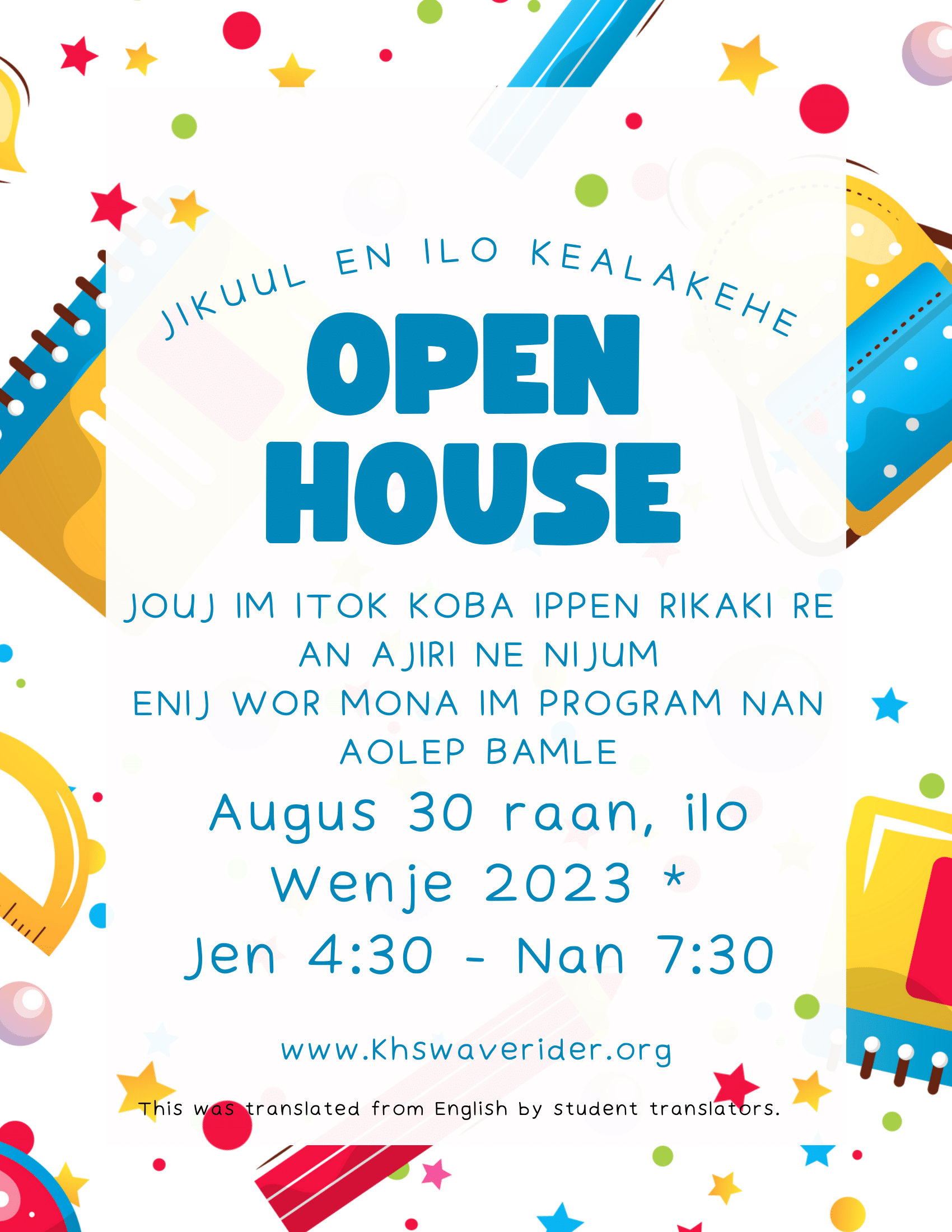Bright Spot: Transformative Translations
Our next generation of leaders will be diverse in many ways, including linguistically.
Recognizing that young people from multilingual households are often underappreciated community assets, a West Hawaiʻi teacher gathered support to launch an innovative career pathway and community service project. This Transformative Translations program truly lives up to its name by celebrating and utilizing these students’ potential.
Mahalo to the Transformative Translations program director, Kealakehe High School Spanish language teacher Natalie Lalagos, for talking story with us.
What is Transformative Translations?
This program for multilingual sophomores, juniors, and seniors consists of two parts. The first part is a dual credit course run in partnership with UH Hilo. It starts with a 102 level Introduction to Linguistic Translation course – adapted from the standard introductory linguistics course to focus on translation skills – followed by a 133 course in the spring. Dual credit courses allow high school students to simultaneously earn high school and college credits in a single class. As part of the course, the students also visit the UH Hilo campus and talk to college students pursuing the study of linguistics. These visits for students, some of whom may have not excelled academically before joining the program, help make college seem like a real possibility. Program participants have expressed that they never imagined themselves going to college until they got the chance to visit.
Student translators hard at work.
After passing the dual credit course, students can apply to become translation interns until they graduate. The application process supports students in developing important resume building and interviewing skills.
Once hired, interns meet virtually after school to discuss translation projects. The flexible remote format helps the students to learn self-management for the modern workplace while reducing transportation and scheduling barriers. Program staff manage requests from schools and community organizations, and the students are paid stipends to do the translation work. It is a collaborative process that encourages project-based and work-based learning.
This type of hands-on work fosters great discussions about language and the challenges of translating, particularly with specialized terminology and terms that do not have direct translations. For example, what is the best way to advertise an “open house” school event in a language that doesn’t have a direct translation?
Above: Kealakehe High School Open House flyers translated by Transformative Translations students
Progress so far
The program is currently in three high schools across the island: Kaʻū, Konawaena, and Kealakehe. Natalie acts as the program director, as well as the school site coordinator at Kealakahe High School. She is supported by school site coordinators Viviana Martinez (Konawaena High School) and Diane Bonoan (Kaʻū High), teacher Grace Nguyen (Konawaena High School), and Professors Scott Saft and Leisy Wyman (UH Hilo).
Transformative Translations began in the 2021-2022 school year with just six students. Presently, there are 29 students representing 7+ languages, including most of Hawaiʻi’s most common languages: Tagalog, Ilocano, Spanish, Marshallese, Kosraean, Chuukese, and Mandarin. Now, the students in the program want to build awareness so they can take on more community projects as a way of giving back to their communities.
Community translation services
Submit unofficial materials such as event flyers using this Google Form: https://forms.gle/2ZdRReUEiSQ93XxU9. Video and audio submissions are also welcome, but all translations will be text-based. The service is free, but comes with the disclaimer that there may be errors, as students are learning and are not professional translators.
For students
Multilingual students with some reading and writing skills from grades 10 and up can talk to their school (Kaʻū, Konawaena, and Kealakehe High Schools) about signing up.
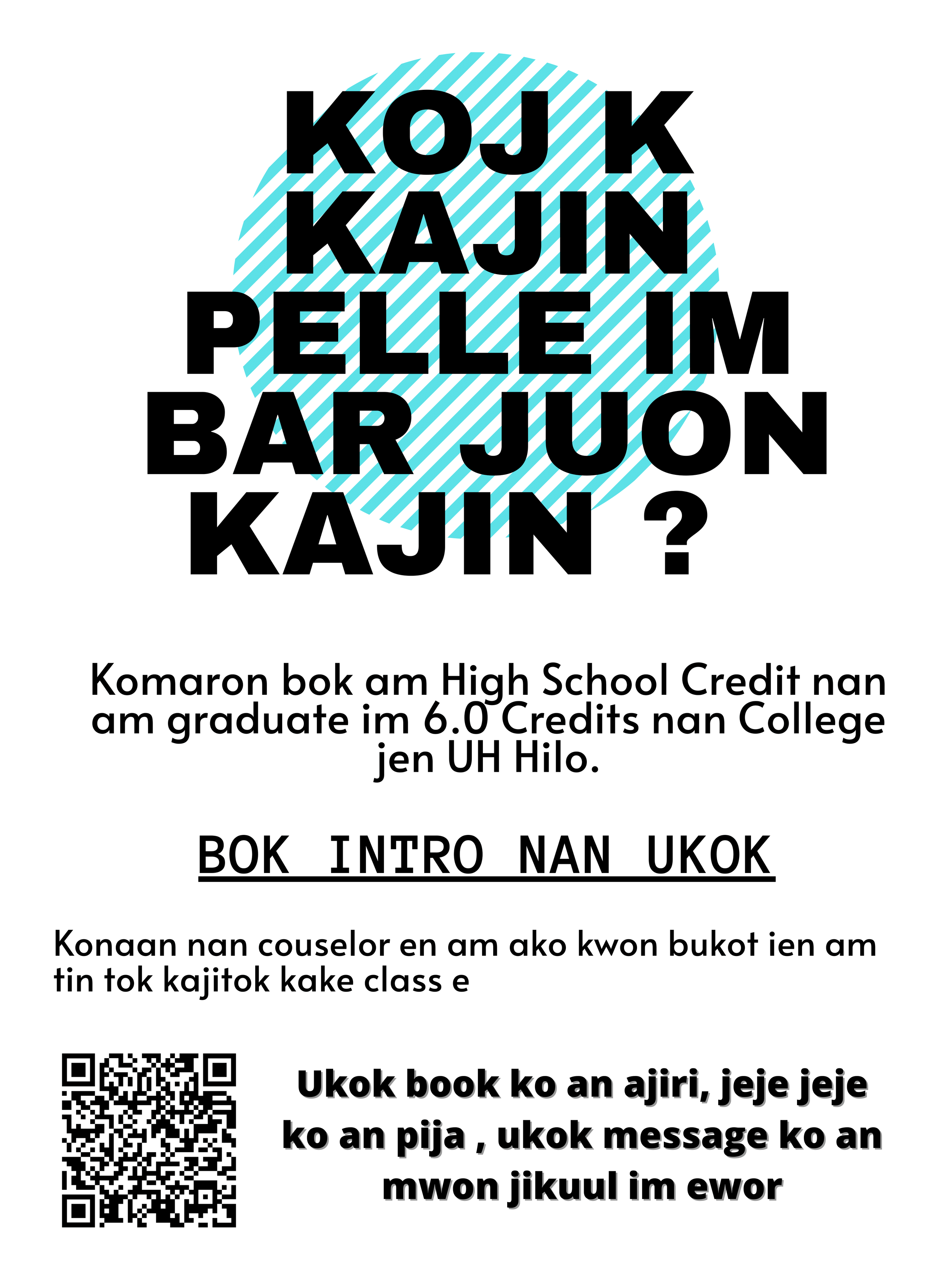
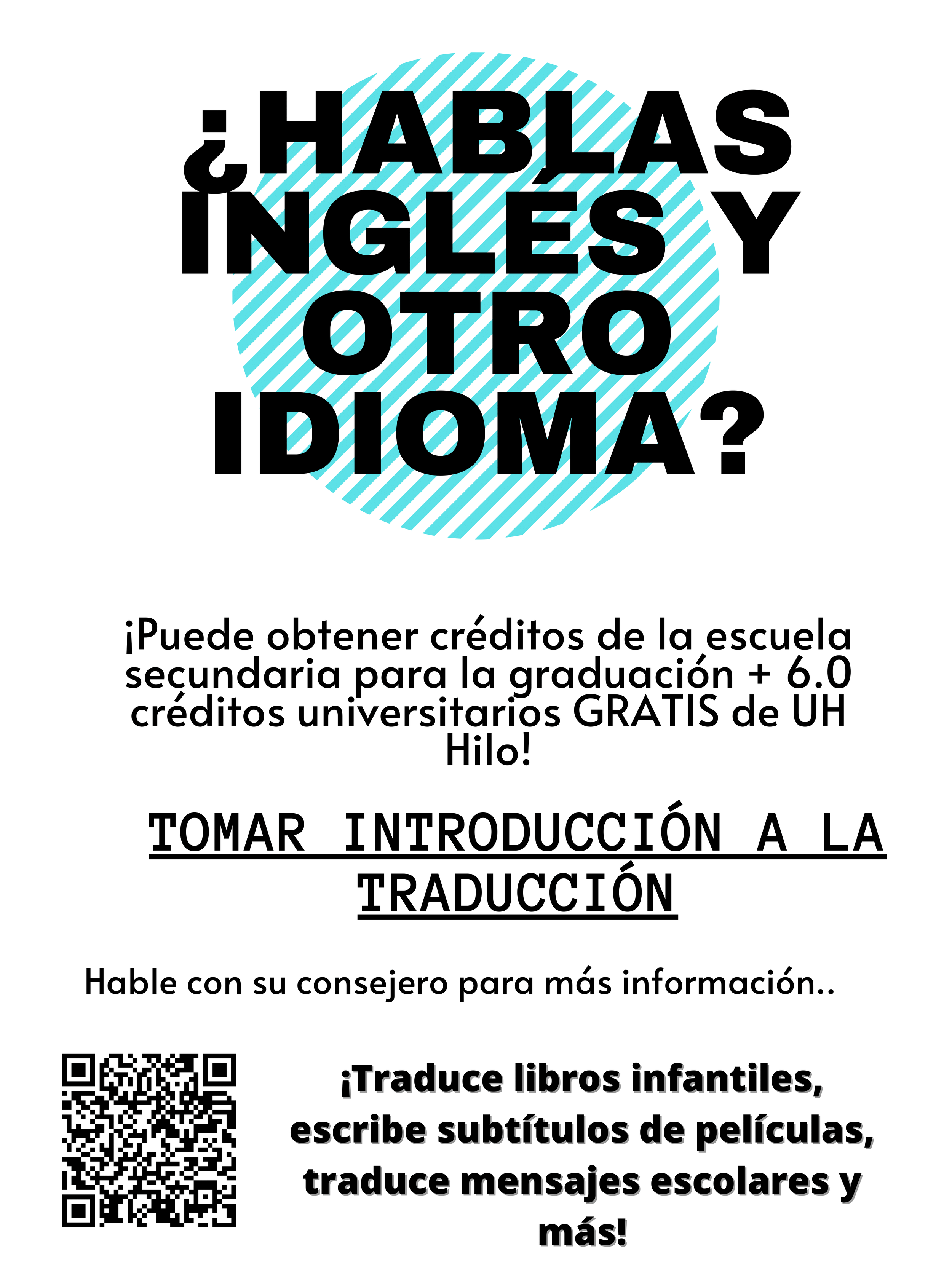
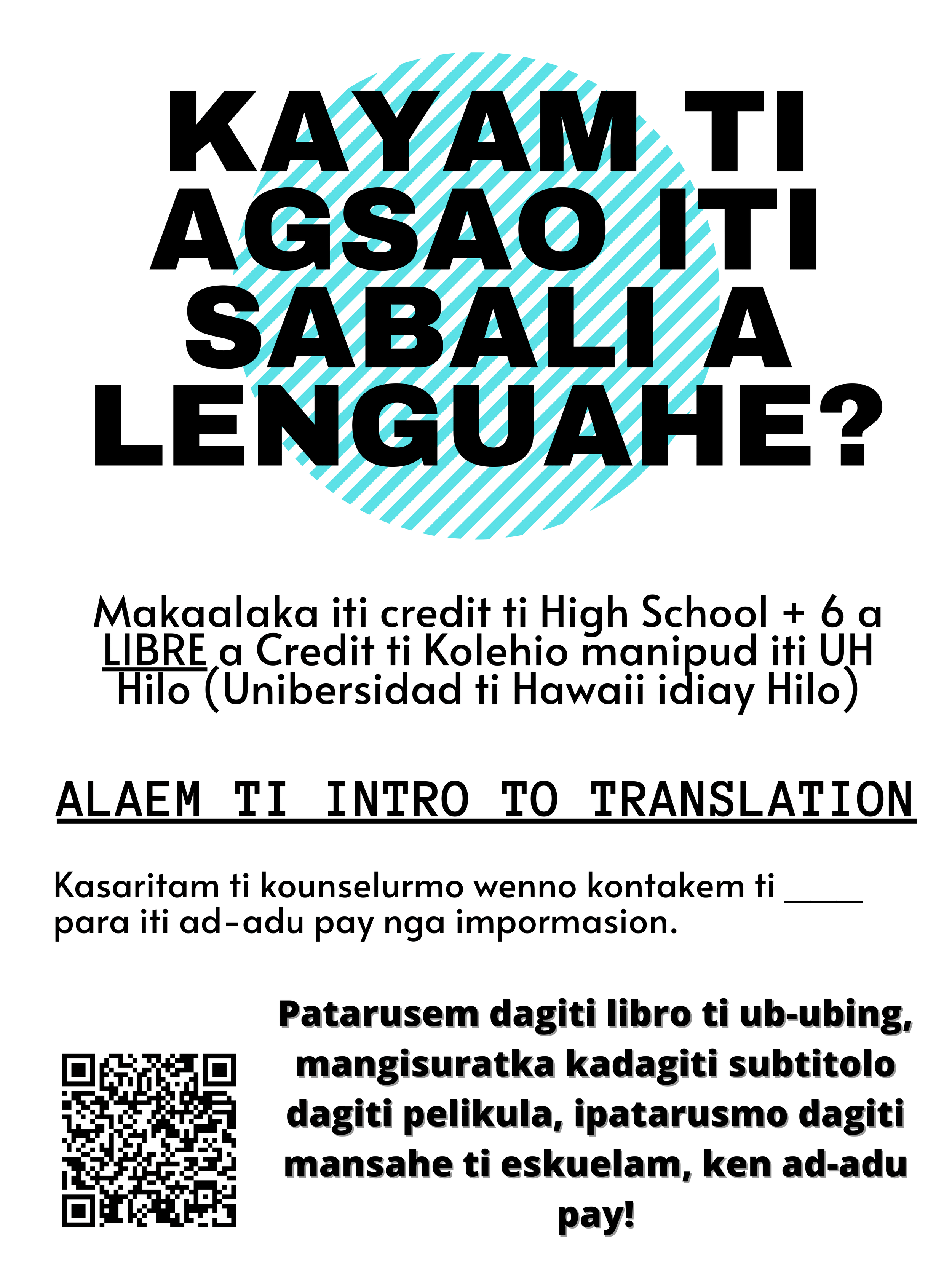
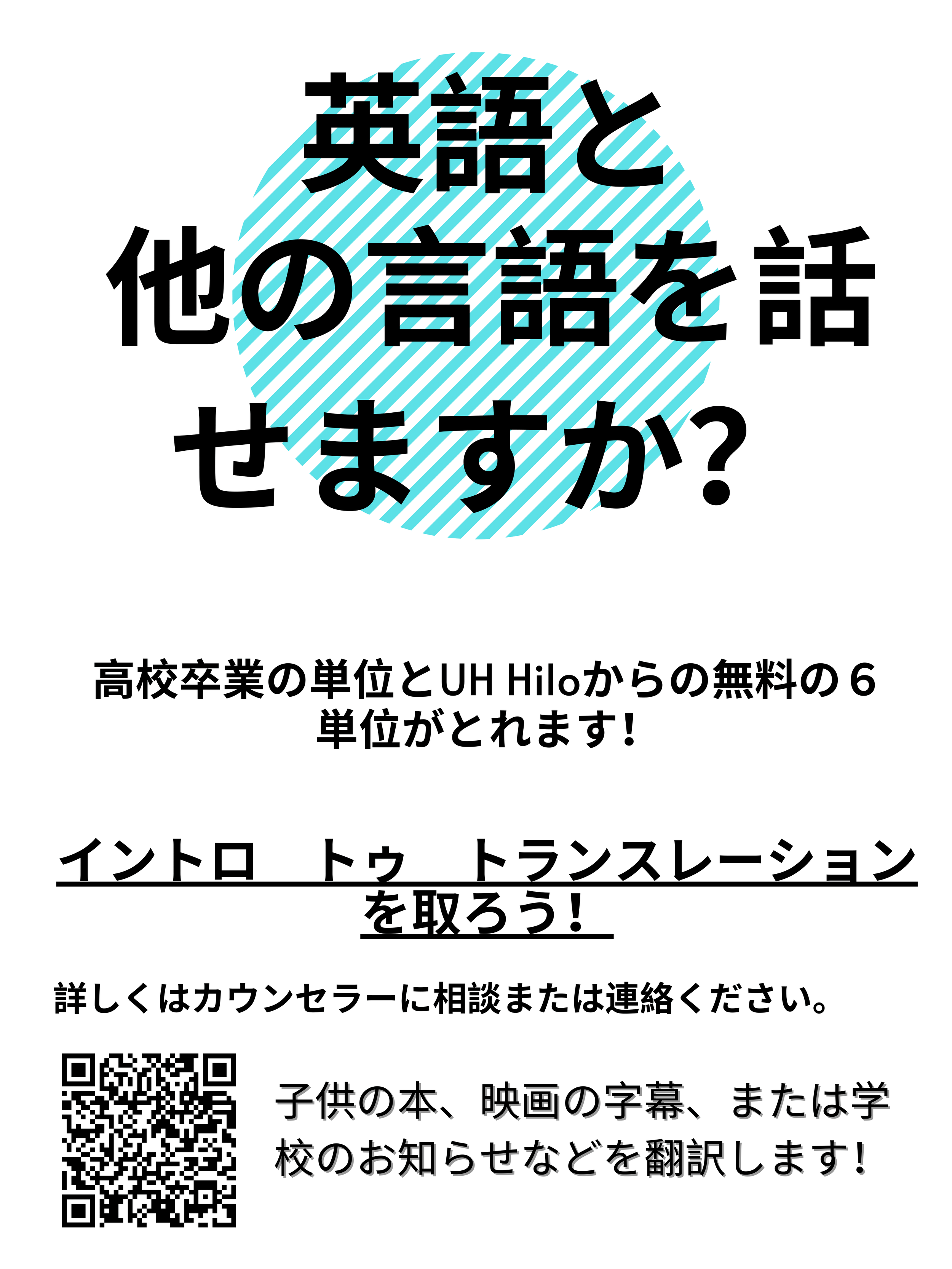
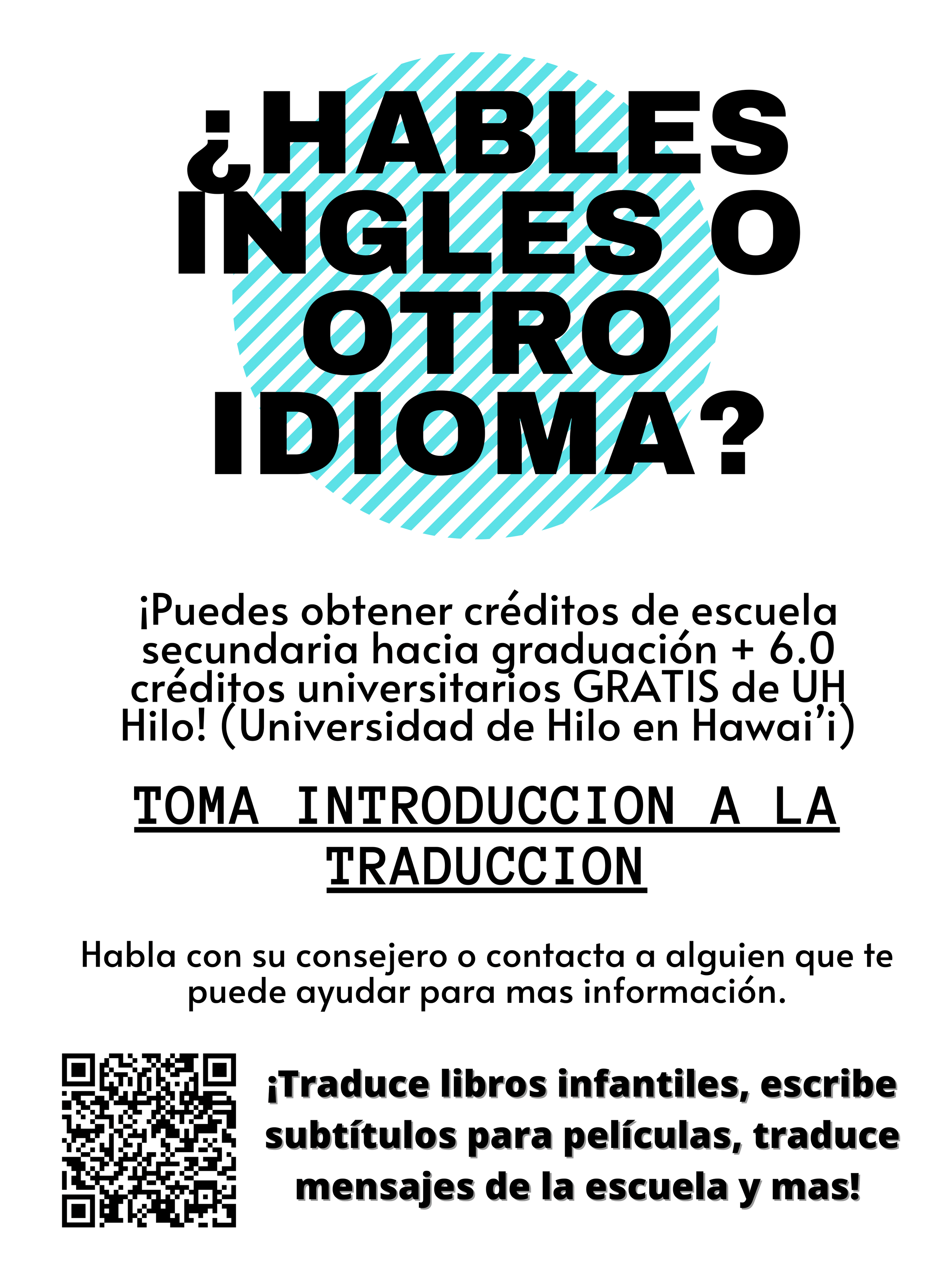
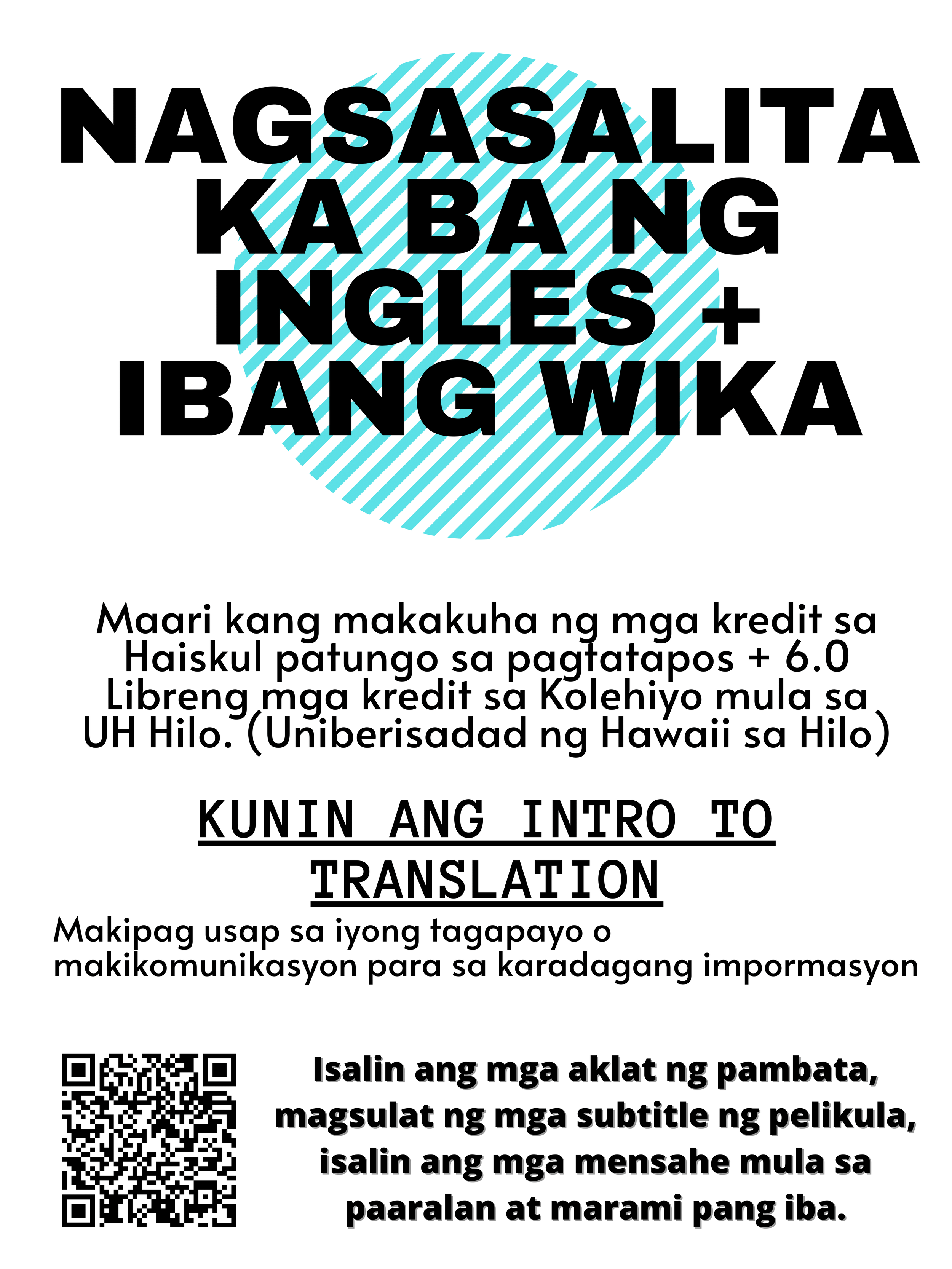
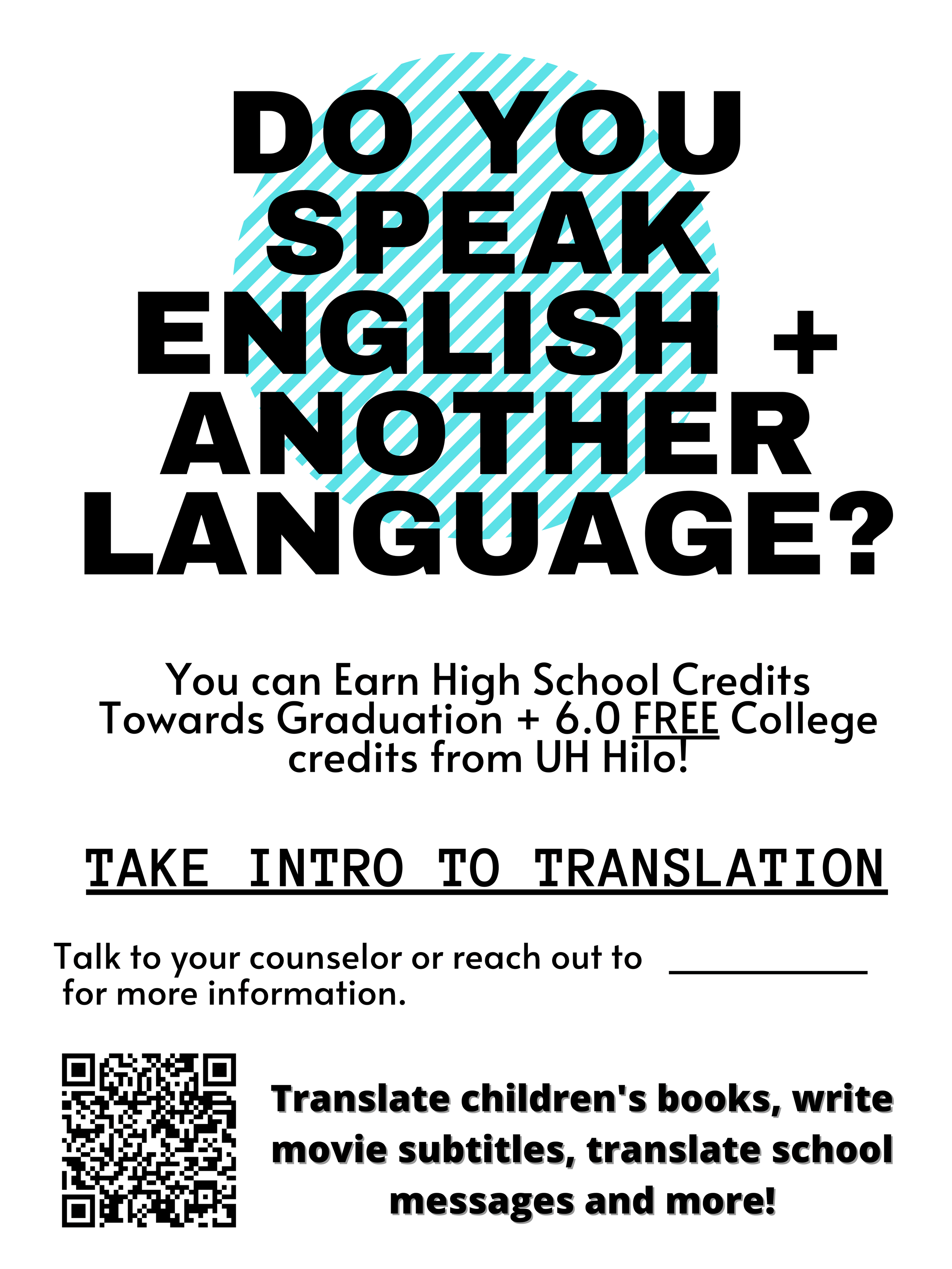
Above: Class advertisements translated by students.
Get involved
As Transformative Translations continues growing, they could use the help of adult volunteers that speak, read, and write the same languages as the students. Volunteer mentors would be very helpful with providing feedback and encouragement. Beyond translation help, students’ confidence and sense of connection would benefit from supportive mentors that speak the same language.
If you would like to donate to help pay more students and meet miscellaneous program costs, please visit Friends of the Future’s donation page:
Charitable entities or other funders can get in touch by contacting Friends of the Future. Transformative Translations would make good use of additional support to expand to more schools, students, and languages.
Mahalos
We thank Natalie and the Transformative Translations team for promoting the value of multilingualism. This program not only helps students experience potential career pathways, it also builds leadership skills and allows these future leaders to give back to the communities they care deeply about.
Natalie would like to thank Professor Scott Saft of UH Hilo for both helping to set up the program and continuing to build it up. Mahalo also to the university, particularly the Linguistics Department and the College of Hawaiian Language.
Natalie is also grateful to the nonprofits and educational institutions that help to cover the financial aspects.
The Transformative Translations program is partially funded by a Hana Hauʻoli Social Justice Educator Grant, which is handled by the program’s fiscal sponsor 501(c)(3) organization, Friends of the Future.
The high schools also maintain agreements with the University of Hawaiʻi to help cover the costs of the dual credit courses.



